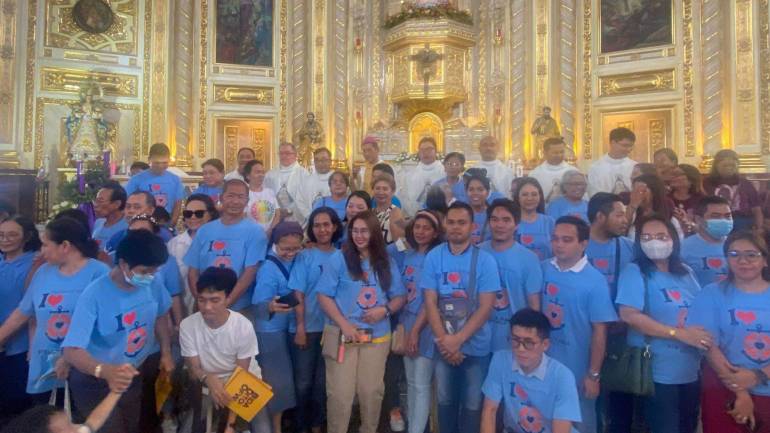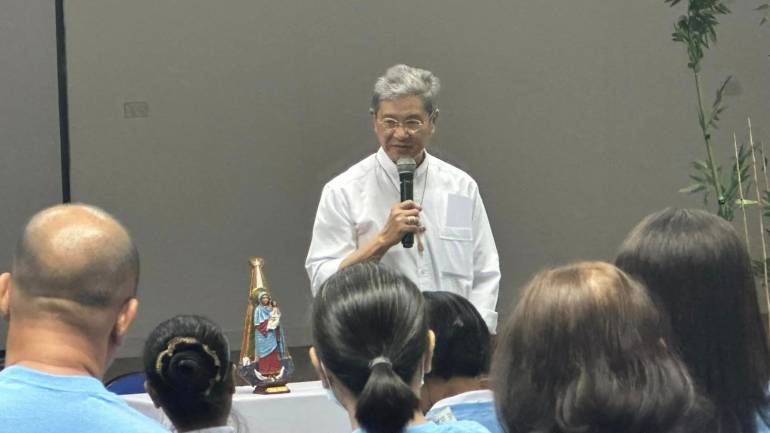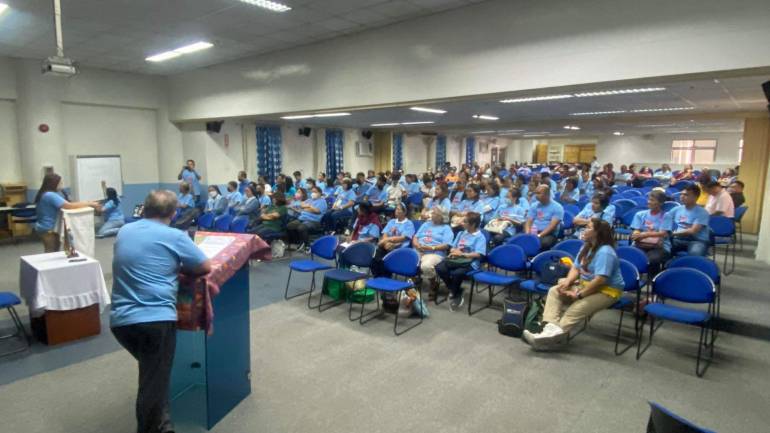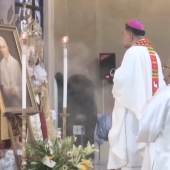Filipino bishop reminds wives to pray for their seaman husbands
A Filipino bishop has reminded the wives and family members of seafarers to pray for their husbands or family members who are on board.
Bishop Ruperto Cruz Santos of the Antipolo diocese inspired the seafarers’ families, especially the wives, to be understanding, supportive, and independent of their husbands who were working abroad on ships.
On December 5, with the initiative of Father Paulo Prigol, the Stella Maris Chaplain of Manila invited other Stella Maris chaplaincies like Batangas with Father Toter Resuello and San Fernando, La Union with Father Loyd Manzano, for a day of pilgrimage and recollection held at the International Pilgrim Site of Our Lady of Peace and Good Voyage Cathedral, Antipolo.
Bishop Santos, who is also the promoter of Stella Maris Philippines, was the resource speaker for the recollection.
After the bishop's talk, the group was divided into four and reflected on, answered, and shared guide questions that focused on the areas of family life where families struggle the most.
Families of seafarers, Stella Maris employees, Scalabrini priests and seminarians, and seafarer families representing Amosup and the Stella Maris National Director were the main pilgrims present.
“It was a spiritually refreshing and nourishing day for all,” said a participant.
Stella Maris is the missionary arm of the Catholic Church. It helps people who live or work on the water, especially sailors on fishing, industrial, or military ships.
About 489,852 Filipino sailors worked at sea in 2022, and they sent back about $6,715,880,000. If Filipinos work abroad and make money, at least 22% of that money goes back to their families who work at sea.
The Apostleship of the Sea (AOS) was originally called the Apostleship of the Sea (AOS). It began on October 4, 1920, in Glasgow, Scotland.
Radio Veritas Asia (RVA), a media platform of the Catholic Church, aims to share Christ. RVA started in 1969 as a continental Catholic radio station to serve Asian countries in their respective local language, thus earning the tag “the Voice of Asian Christianity.” Responding to the emerging context, RVA embraced media platforms to connect with the global Asian audience via its 21 language websites and various social media platforms.


















